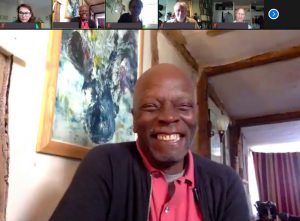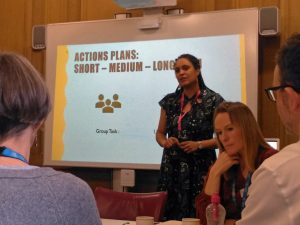Decolonisation diary: Our first steps
Posted on by Fay Curtis.
by Finn White, Engagement Officer for Communities
As a museum service, we’ve decided to do something about our colonial heritage. This is the first of an ongoing series of blog posts that will document our attempts to come to terms with this most challenging of histories.
We’re currently calling this piece of work ‘Decolonisation’. There are many arguments that a service such as ours cannot ever free itself entirely of the legacy of colonialism. After all, we are very much a product of empire. However, we’re currently using the term to mean the following:
- Taking a stance that is explicitly and actively anti-racist and anti-xenophobic
- Interrogating the inherent biases embodied in our collections, our buildings and our workforce.
- Ensuring our venues and collections are accessible, welcoming and representative of our whole community.
Decolonisation is not just about the objects we care for and the stories we tell. We are also keenly aware that our workforce is by no means representative of our city.
16% of working age Bristolians are Black, Asian and Minority Ethnic (BAME), but our staff are only 7% BAME. This is not going to be fixed overnight, but we acknowledge that serious efforts to redress this imbalance must be central to any attempts to meaningfully ‘decolonise’. The work we undertake as part of this process will form an important part of our ‘Diversity and Inclusion’ programme.
This is not the first time we’ve engaged with ideas around decolonisation. For many years we have run projects and exhibitions that celebrate cultures from all over the world. We’ve co-produced content with a wide range of communities and employed a diverse range of voices to enrich our content (check out our recent Uncomfortable Truths project for example).
But, this is the first time we’ve made a focussed, service-wide approach to genuinely question ourselves in this way. The recent events surrounding the Black Lives Matter movement and the toppling of Colston’s statue have only helped bring a greater sense of urgency to the project. This is not to say that racism wasn’t always desperately urgent for those who experience it on a daily basis, but it has certainly helped quicken our organisational step.

Over the summer of 2020 we’ve been taking part in workshops led by Black Southwest Network. The workshops have sought to highlight the issues of power, racism and inequality that too often underlie museums and heritage in this country. Guest speakers from the UK and America have shared thoughts, experiences and provocations around the theme. It hasn’t been entirely plain sailing. Some staff have felt personally criticised during some of the discussions and felt that negative stereotypes of them were being perpetuated. It shows what a challenging and often painful process this can be. The journey will undoubtedly be a rocky one, but there is real enthusiasm across our team to tackle it.
The programme of workshops has led to the formation of a ‘Decolonisation Working Group’, made up of staff from across the museum team. As a group, we will set actions and agendas, initiate projects and flesh out the initial statements of intent. It’s important to note that we are currently mostly white. We agreed that we had to immediately diversify the group to include a much more representative range of voices. Going forward, it’s also essential that we involve people from outside our workforce in shaping and driving the agenda.

So far, the group has met to establish priority actions. As a first step, we’re working on a clear statement for our website to show to the public what we are planning to do. We also want a clear and obvious public statement in (or on) our buildings. We want to show the world our desire to change and to be transparent in our decision making. We’ll also develop training for our visitor services staff to ensure our whole workforce feels confident and comfortable to share our vision of decolonisation with others.
So that’s where we’ve got so far. There’s a long road ahead of us, many hurdles to be overcome and painful truths to be faced. We don’t know exactly where it will take us, or how we will get there, but we’ll keep writing blogs like this one to share our progress with you.
Please follow our journey and feel free to drop us an email at [email protected].
Finn White is our Engagement Officer for Communities. He co-produces projects with a range of communities and works to remove the barriers people face when engaging with museums. He is a member of our Decolonisation Working Group.